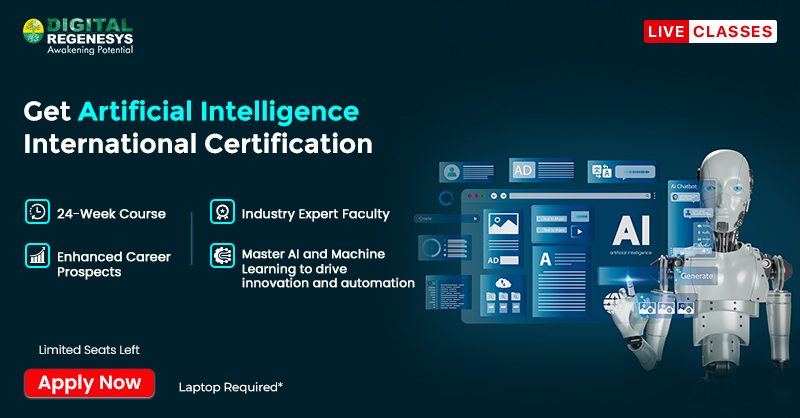Machine Learning Courses in South Africa

South Africa has emerged as one of the continent’s fastest-growing hubs for technology education and innovation. From Johannesburg to Cape Town, universities, online platforms, and private institutions are offering machine learning courses that cater to beginners as well as advanced learners.
These courses provide essential knowledge and practical skills to prepare professionals for roles in data science, AI development, and analytics. For students aiming to remain competitive in a digital economy, machine learning has become a critical area of study.
In this article, we will explore the value of machine learning courses in South Africa. We will look at what these courses cover, where they are offered, their benefits, challenges faced by learners, career opportunities, and the importance of structured learning.
By the end, readers will have a clear understanding of why machine learning is in demand and how to choose the right course for career growth.
Why Machine Learning Courses Matter?
Machine learning is at the heart of artificial intelligence and modern data-driven decision-making. Companies worldwide are integrating ML into operations, from customer support chatbots to predictive analytics.
For South Africa, which is developing its digital economy, these skills are vital for innovation and global competitiveness. Courses that teach machine learning not only prepare individuals for technical roles but also enhance problem-solving and strategic thinking across industries.
Therefore, the reasons why these courses matter include-
- Industry demand- Growing need for AI and ML experts.
- Career relevance- Skills apply across multiple sectors.
- Innovation- Supports tech-driven start-ups and projects.
- Adaptability- Learners prepare for evolving digital work.
- Global competitiveness- Aligns with international tech trends.
Read more – Discover How Does AI Differ from Traditional Computer Programmes.

Key Platforms Offering ML Training – Digital Regenesys
The Artificial Intelligence Certificate Course offered by Digital Regenesys includes machine learning as a central part of its curriculum. Learners gain a strong foundation in predictive modelling, classification, and clustering, alongside broader AI topics. With live online classes, hands-on projects, and expert guidance, participants develop both theoretical knowledge and applied skills. This structured approach enables professionals in South Africa to strengthen their expertise in data-driven modelling, predictive analytics, and intelligent system design.
Therefore, here are the main highlights of this AI course with ML integration-
- Focus Areas- Machine learning concepts, such as predictive modelling, classification, and clustering, are embedded within the AI curriculum.
- Broader Coverage- Learners also explore deep learning, natural language processing, and computer vision.
- Practical Training- Hands-on projects ensure ML concepts are applied in real-world contexts.
- Flexible Learning- Delivered fully online over 24 weeks, accessible to both beginners and professionals.
- Industry Recognition- Accredited by IITPSA with 47 CPD points, adding credibility for career growth.
Get insights on Top Artificial Intelligence Stats.
What do These Courses Cover?
Machine learning courses in South Africa cover fundamental and advanced topics, depending on the level of study. Beginners typically start with Python, statistics, and basic ML algorithms.
Advanced courses move into deep learning, natural language processing, and reinforcement learning. The aim is to balance theory with practical applications, enabling learners to implement solutions to real-world challenges.
Therefore, course content usually includes-
1. Introductory Artificial Intelligence Modules
These modules provide the foundation required to understand how AI systems are built and applied. Learners are introduced to programming concepts, problem-solving methods, and essential coding skills that form the base for more advanced topics. By starting here, even beginners can gradually develop the confidence to apply AI techniques.
- Programming Foundations for AI – Learn core coding concepts required to build AI solutions.
- Applied Programming for AI – Apply coding skills to implement AI algorithms and workflows.
2. Intermediate Artificial Intelligence Modules
At this stage, learners move beyond coding basics to focus on predictive modelling and statistical methods. These modules teach how to use data effectively for making predictions, identifying trends, and grouping information. The skills gained here are widely applied in fields such as finance, healthcare, and business analytics.
- Predictive Modelling with Regression – Build models to predict continuous outcomes using data.
- Predictive Modelling with Classification & Clustering Techniques – Learn to group or classify data for decision-making.
3. Advanced Artificial Intelligence Modules
The advanced modules cover high-level AI technologies that are reshaping industries worldwide. Learners engage with neural networks, deep learning, and advanced data interpretation techniques, including natural language processing and computer vision. These topics prepare professionals to build intelligent systems capable of handling complex real-world challenges.
- Deep Learning & Neural Architectures – Explore neural networks for complex tasks like image and speech recognition.
- Natural Language Processing & Computer Vision – Gain skills in analysing language and interpreting visual data.
4. Self-Paced Modules
Applied Natural Language Processing
This module helps learners understand how NLP is applied in real-world systems to process and analyse human language. Students also work with tools that make text-based AI applications more efficient.
- Leveraging Hugging Face NLP Pipelines – Use pre-built NLP models to accelerate development.
- Automated Text Summarisation Techniques – Implement AI methods to generate concise summaries from text.
- NLP-Driven Recommendation Systems – Build intelligent systems that personalise content suggestions.
5. Applied Computer Vision
Learners are introduced to computer vision applications that go beyond theory, focusing on building intelligent systems for image and video understanding. These practical skills are highly valued in industries like healthcare, retail, and security.
- Real-Time Object Detection Methods – Train AI to identify objects instantly in images or video.
- Intelligent Object Tracking in Video Streams – Develop systems that follow objects across frames.
- Human Pose Estimation and Analysis – Use vision techniques to map and study human movements.
6. Applied Time Series Analysis
This module trains learners to handle time-dependent data, a critical skill for forecasting in fields such as finance, economics, and operations. By combining statistical and deep learning techniques, students learn to build accurate predictive models.
- Fundamentals of Time Series Data – Understand patterns and dependencies in sequential datasets.
- Time Series Manipulation Using Pandas – Learn data handling methods with Python libraries.
- Statistical Modelling Techniques for Time Series – Apply regression and ARIMA methods for forecasting.
- Deep Learning Model for Time Series Forecasting – Use advanced networks to improve prediction accuracy.
Benefits of Studying ML in South Africa
Studying machine learning in South Africa provides unique advantages compared to pursuing the same subject elsewhere. The local technology ecosystem is growing rapidly, creating opportunities for practical exposure and experience.
Tuition fees are often more affordable compared to Europe or North America, while still maintaining strong academic standards. Students can also benefit from partnerships with African businesses looking to apply machine learning solutions.
Therefore, benefits include-
- Affordability- Lower tuition compared to global averages.
- Relevance- Training tailored to regional industry needs.
- Access- Availability of both online and in-person options.
- Community- Networking with Africa’s growing tech sector.
- Career opportunities- Local demand for skilled professionals.
Read about What is Artificial Intelligence in Project Management?
Career Opportunities in South Africa
Completing a machine learning course opens several career pathways. In South Africa, the demand for data scientists, ML engineers, and AI researchers is rising across industries such as banking, healthcare, and retail.
Government initiatives and private sector investments in technology have increased the number of roles requiring ML expertise. Professionals trained in ML often find themselves positioned for leadership in innovation-driven organisations.
Therefore, common career paths include-
- Machine learning engineer- Builds and deploys ML models.
- Data scientist- Analyses data and creates predictive models.
- AI researcher- Investigates advanced algorithms.
- Business analyst- Applies ML insights to decision-making.
- Consultant- Advises companies on AI and ML strategies.
Future of ML Education in South Africa
The future of machine learning education in South Africa looks promising as the digital economy continues to expand. More universities are adding specialised degrees, while private platforms offer short, skills-focused certificates.
As global companies outsource tech projects to Africa, the demand for trained professionals is expected to grow further. Partnerships between government, academia, and industry are expected to make ML education more accessible and impactful in the coming years.
Therefore, future trends include-
- Curriculum expansion- Broader coverage of AI topics.
- Industry partnerships- Work-integrated learning projects.
- Government support- Funding for digital skills development.
- Increased accessibility- More affordable and flexible learning.
- Regional leadership- South Africa as a hub for AI talent.
Conclusion
Machine learning is no longer a niche subject but a vital skill for South Africa’s growing technology ecosystem. Learners who pursue structured training gain both technical competence and industry relevance. Choosing the right course depends on personal goals, budget, and preferred style of learning.
For those aiming to gain practical knowledge and recognised certification, structured courses can provide the best starting point.
TheDigital Regenesys Artificial Intelligence Certificate Course is one such opportunity. It combines practical modules, theory, and projects designed to help learners apply AI and ML concepts in real-world scenarios. With flexible learning options and a focus on employability, this course is ideal for those who want to strengthen their career prospects.
Visit Digital Regenesys today to explore the Artificial Intelligence Certificate Course and take the first step toward becoming future-ready.
Last Updated: 1 October 2025
